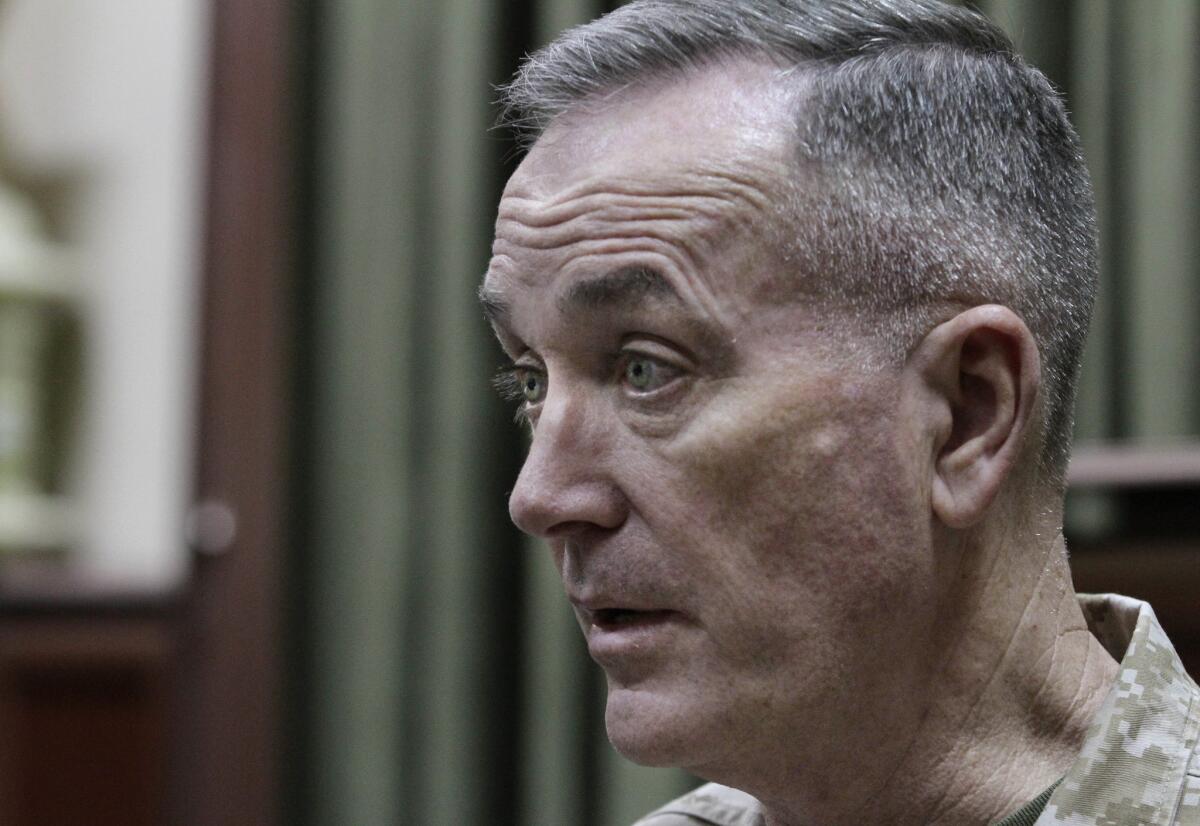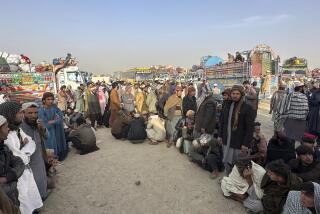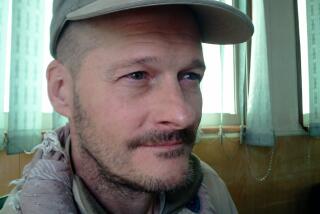U.S., Afghan leaders agree on gradual security transfer in key province

KABUL, Afghanistan — U.S. military leaders reached a deal with Afghan officials that calls for a gradual transition of security responsibilities in a volatile eastern province from American special forces to Afghan troops, officials from both sides announced Wednesday.
The arrangement aims to defuse a dispute triggered by accusations from President Hamid Karzai that U.S. troops were responsible for abductions and human rights abuses in Wardak province.
Tense relations between Kabul and Washington became further strained by Karzai’s recent claims that American special forces and U.S.-trained Afghan local police had kidnapped nine villagers from Nerkh district in Wardak, located just west of Kabul, the capital, and had mutilated the body of another villager from a different provincial district after killing him.
U.S. military leaders vehemently denied the allegations, and in recent interviews local law enforcement and provincial officials in Wardak said there was no basis for Karzai’s claims.
Afghan police who investigated the man’s slaying said he was a Taliban facilitator killed amid a power struggle between rival Islamist groups. U.S. officials have said they arrested four of the nine men Karzai claimed were abducted and are holding them on suspicion of involvement in insurgent attacks, and had no contact with the other five men.
Nevertheless, on Feb. 24 Karzai demanded that American special forces leave Wardak within two weeks. They did not do so.
On Wednesday, U.S. Gen. Joseph Dunford, commander of the U.S.-led coalition in Afghanistan, said he had met with Karzai and reached an agreement that paves the way for Afghan soldiers to replace U.S. troops and U.S.-trained Afghan local police in Nerkh. Afghan officials will determine when the transfer is made, Dunford said in a prepared statement.
U.S. troops deployed in the rest of Wardak province would be replaced by Afghan soldiers “over time,” Dunford said.
“This plan meets [President Karzai’s] intent and leverages the growing capacity and capability of the Afghan security forces to meet the security needs of this country,” Dunford said. “This solution is what success looks like as we continue the transition to overall Afghan security lead.”
Wardak is a key region because it serves as a western gateway to Kabul. Provincial law enforcement officials have expressed concern that the departure of American special forces personnel could jeopardize security and give insurgents space from which to launch attacks on Kabul, about half an hour’s drive away.
Mohammed Zahir Azimy, a spokesman for the Afghan Defense Ministry, said no timetable has been set for the replacement of U.S. troops and Afghan local police in Nerkh.
“The special forces have a lot of equipment, and it takes some time to pick up and leave,” Azimy said. “Right now, we are talking about Nerkh district, but in the future we’ll know about the other areas” of Wardak.
The agreement represents a victory for Karzai, who increasingly has been trying to appear more assertive in his dealings with Washington. Analysts believe he may be trying to appease insurgents and coax them into peace talks ahead of the 2014 drawdown of U.S. troops from Afghanistan.
In recent weeks, Karzai also issued orders to limit U.S.-led coalition airstrikes, and has even accused the U.S. of collaborating with the Afghan Taliban in order to destabilize the country and create a pretense for maintaining a presence in Afghanistan.
ALSO:
Obama starts first presidential visit to Israel
In Iraq, 10 years after U.S. invasion, legacy of war lives on
A Marine salutes the flag in Iraq -- the story behind the photo
Times staff writer Alex Rodriguez reported from Islamabad, Pakistan and special correspondent Hashmat Baktash reported from Kabul.
More to Read
Start your day right
Sign up for Essential California for news, features and recommendations from the L.A. Times and beyond in your inbox six days a week.
You may occasionally receive promotional content from the Los Angeles Times.






